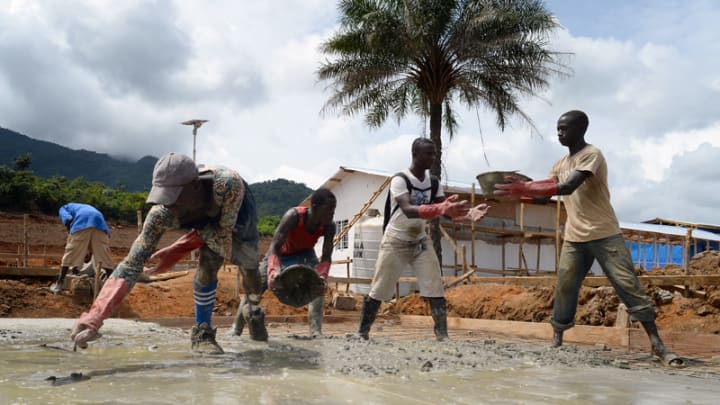
Almost six months have passed since the World Health Organization officially proclaimed Sierra Leone Ebola-free. There have been a few scares since, but stability is nonetheless returning — bringing with it renewed hope of progress. Prior to Ebola, Sierra Leone was experiencing sustained annual economic growth of between 4 and 7 percent, with projected growth close to 11 percent. Governance, gender, environmental and social indicators had been improving. We had seen small but tangible improvements in infrastructure development.
This progress was all but extinguished by Ebola. Moreover, close to 4,000 Sierra Leoneans died during the Ebola crisis, with virtually every community affected. It will take generations for many families to get over that loss.
Still, we must start to move the country back toward a positive development path as soon as possible. Sierra Leone’s post-civil war development was predicated on good governance and economic growth. These two factors are again key now, and show some encouraging signs. Ebola demonstrated the resilience of the Sierra Leonean state and several key private sector actors.
On the government level in Sierra Leone, the swift setting up of the National Ebola Response Center, which acted as a focal point for emergency relief and coordination, significantly improved the national recovery effort. Several private sector actors participated.
At Sierra Rutile, a mineral sands company, we helped communities near our operations prepare for the virus. We learned it was crucial to establish stringent protocols and worked alongside community leaders to raise awareness about the impact of the virus.
Like several other large employers, we already had experience in working with the community on health issues, making it easier to mobilize the community against Ebola. One example is a clinic within our mining concession that treats 22,000 people per year. The clinic offers free HIV testing, provides health education, and delivers mosquito nets for malaria prevention. We took this provisional structure and simply refocused it on tackling Ebola.
The role we and other private sector actors played during the Ebola crisis now needs to be expanded as the country returns its focus toward stability and economic growth. President Ernest Bai Koroma recognized this in his Agenda for Change (2007-2012) and Agenda for Prosperity (2013-2017), which aim, among other things, to create a positive enabling environment for the private sector. For our part, large private sector employers must continue to engage in Sierra Leone and other fragile states. As employers, we play a crucial role in bringing people into the formal economy, spurring the creation of new businesses down the supply chain, and on the macro level, earning much needed foreign exchange.
As the Ebola crisis highlighted, the private sector can also help deliver progress in areas such as welfare and education in communities in rural areas left behind by development. This capacity must be leveraged to speed up the transition from fragility to development.
Sierra Leone is entering the second phase of its Ebola recovery plan, and there is still a long way to go before the country returns to its pre-crisis position. The cost in lives was devastating, but we must prove that Ebola was not fatal blow in the country’s long-term transition. Through coordination between government and donors, civil society and the private sector, Sierra Leone can emerge from this crisis in the same way it emerged in the decade after the civil war. It will not be easy, but it can be done.
Join the Devex community and access more in-depth analysis, breaking news and business advice — and a host of other services — on international development, humanitarian aid and global health.




